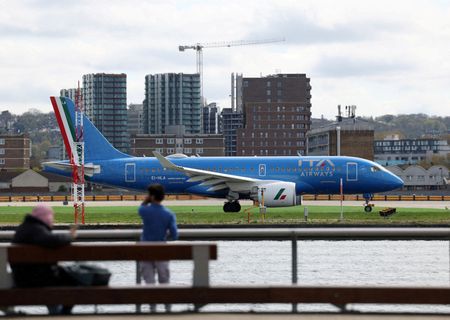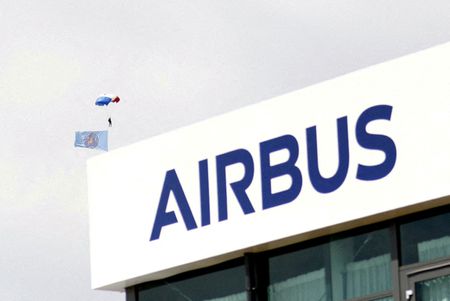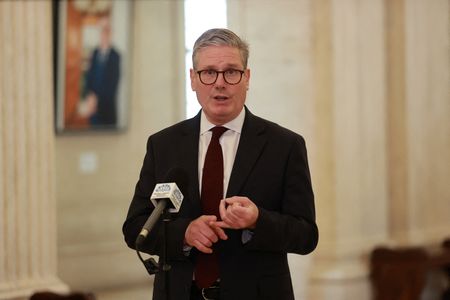By Tim Hepher
PARIS (Reuters) -Europe’s Airbus lowered a production target for its smallest jetliner on Wednesday, taking the gloss off forecast-beating quarterly profits at the rest of its commercial jetliner business as well as gains in helicopters and defence.
The world’s largest planemaker said it aims to speed up assembly for the Canadian-designed A220 to 12 jets a month in 2026, down from a previous targeted rate of 14, and blamed a mix of supply concerns and airlines waiting for upgraded engines.
CEO Guillaume Faury told reporters Airbus still aimed to reach the higher rate, but declined to say when that would be nor how quickly Airbus would stem losses on the programme, which it acquired in 2018 to serve the lower end of the jet market.
“We are not dropping the rate of 14 a month, but we will target 12 instead of 14 next year,” Faury said, while acknowledging that this “doesn’t answer the question of when we will reach the (higher) rate”.
On Monday, Reuters reported that Airbus had pushed back the assembly of some A220s this year and next, and set an internal target of 12 A220s a month in mid-2026, with a rate of 14 a month pencilled in for the last few weeks of that year. That goal is no longer in Airbus’ detailed planning.
Airbus has previously indicated it needs to reach a rate of 14 a month to break even on the programme, which it acquired after its Canadian designer Bombardier ran short of cash. That is almost twice the estimated current rate of 7-8 jets a month.
‘BACKLOADED’ DELIVERIES
France-based Airbus said adjusted or core operating profit rose 38% to 1.94 billion euros ($2.26 billion) in the third quarter as revenues grew 14% to 17.83 billion. Analysts were on average expecting core or adjusted operating profit of 1.76 billion euros on revenues of 17.37 billion euros.
Airbus reaffirmed financial forecasts that now include the impact of tariffs.
It stuck to other key production rate forecasts including 75 of its best-selling A320neos a month in 2027, compared with industry estimates around 60 now.
Airbus reaffirmed a target for around 820 commercial jet deliveries for 2025, after industrial concerns over engine supplies eased during the third quarter.
It faces a sprint to the finishing line after handing over 507 jets in the first nine months. Faury said 2025 deliveries would remain “very backloaded” and cited continued delays in shipments from both its main suppliers for the A320neo family.
Planemakers have been wrestling with engine shortages due to supply constraints and competition from maintenance shops.
Airbus now has a backlog of 32 aircraft assembled and waiting for engines, Faury said, down from a peak of 60.
On defence, Faury renewed pressure on Airbus’ partner in a Franco-German-Spanish fighter project, saying Dassault Aviation was free to “move out” if it did not like the agreed split of work. Airbus, which represents Germany and Spain, remains committed to the project, he told reporters.
France’s Dassault has said there needs to be clearer leadership, with Dassault running the core fighter and Airbus left to make decisions on the unmanned part of the system for which it is responsible. Dassault was not available for comment.
Boeing earlier posted an adjusted third-quarter loss of $7.47 per share, compared with average expectations of a $4.59 loss, and took a near $5 billion hit on its delayed 777X.
($1= 0.8575 euros)
(Reporting by Tim Hepher; Editing by Richard Lough and Daniel Wallis)











